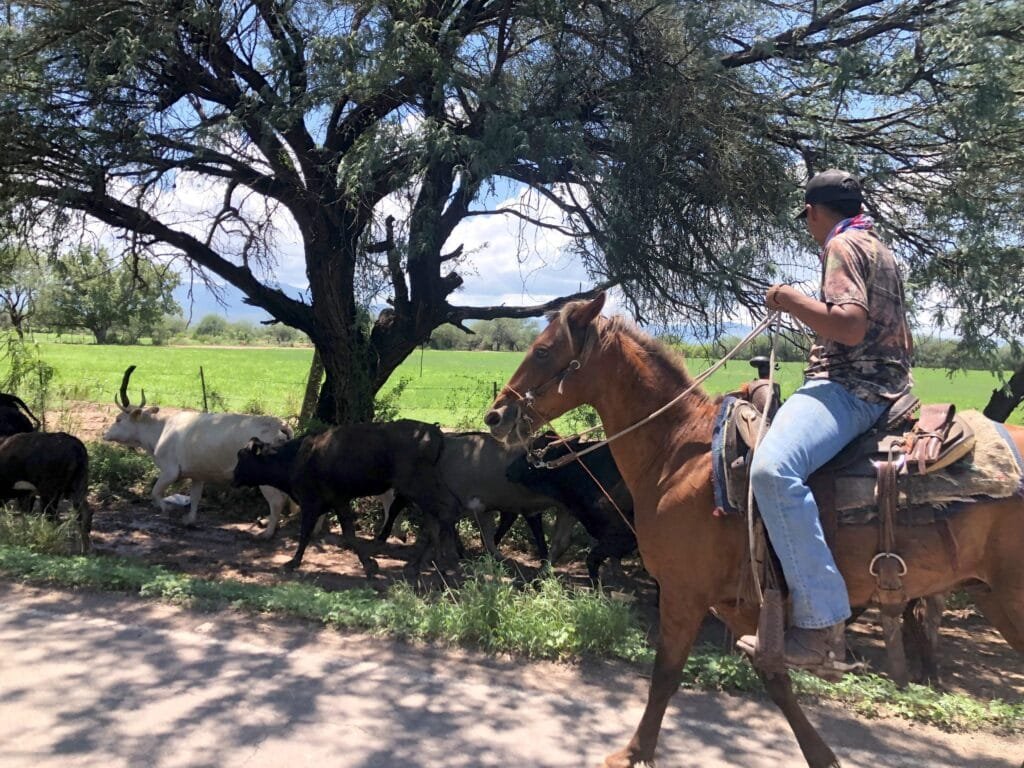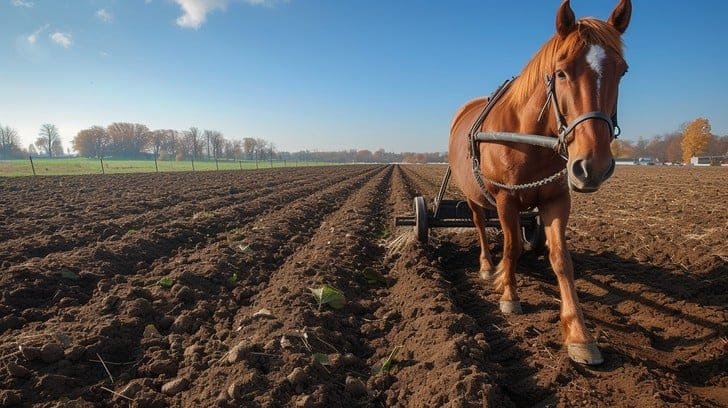Introduction: The Unique Capabilities of Horses
Horses have long been a critical part of human society, contributing to various fields and jobs throughout history. While technology has dramatically advanced and taken over many tasks, there are still certain roles where horses excel, and no machine has been able to fully replicate their unique abilities. Whether in agriculture, law enforcement, or therapeutic settings, horses continue to prove that some jobs are best left to them.
1. Herding and Livestock Management

In many rural and agricultural settings, horses are still used for managing livestock, particularly in large, open areas. Their speed, agility, and instinctive herd management abilities make them perfect for rounding up cattle, sheep, and other animals. While technology like drones and ATVs has been introduced to assist with herding, horses can maneuver through terrain that machines cannot, and their presence is calming for livestock, which helps with gathering and moving them.
- Why Technology Can’t Replace Horses: Horses have a natural ability to work with the instinctive behavior of livestock, making them an ideal choice for herding. The emotional bond they form with animals and their intuitive understanding of herd dynamics cannot be replicated by machines.
2. Therapeutic Work and Emotional Support

Equine-assisted therapy has become an important treatment for people with physical, emotional, or psychological challenges. Horses are incredibly intuitive creatures that can sense human emotions, which makes them particularly effective in therapy. They are used in various settings, including for veterans with PTSD, children with disabilities, and individuals in rehabilitation programs.
- Why Technology Can’t Replace Horses: A horse’s empathy, responsiveness, and presence cannot be replicated by technology. The emotional bond formed between a person and a horse during therapy is something that no machine or digital interaction can replace. Horses have the ability to offer comfort and healing through their calm presence and understanding of human emotions.
3. Law Enforcement and Search & Rescue

In certain law enforcement and rescue operations, horses are used for crowd control, search and rescue missions, and patrolling areas that are difficult to reach by vehicles. Police horses are trained to work in crowded environments and navigate through areas that might be inaccessible to cars, such as parks, forests, and mountain trails. Their keen sense of smell, stamina, and ability to cover large areas makes them invaluable in search and rescue efforts.
- Why Technology Can’t Replace Horses: While drones and search dogs are useful in some situations, horses can navigate difficult terrain more effectively and provide a level of mobility and coverage that technology currently cannot. Their ability to remain calm in high-stress situations also makes them ideal for crowd control and public safety roles.
4. Logging and Forestry Work
In some areas, horses are still used for logging and forestry work, particularly in environments where it would be difficult or damaging to use heavy machinery. Horses can transport logs and other materials from the forest without damaging the environment, leaving less of a footprint than mechanical equipment.
- Why Technology Can’t Replace Horses: Horses are less disruptive to the land compared to heavy machinery. Their ability to navigate narrow trails and work in environmentally sensitive areas without causing soil compaction or destruction of delicate ecosystems makes them indispensable in certain types of forestry work.
5. Agricultural Work: Plowing and Planting

While modern tractors and machines have revolutionized agriculture, there are still small-scale, sustainable farms that rely on horses for tasks like plowing fields, planting crops, and pulling carts. Horses are highly efficient in these roles, particularly in small, organic farming operations where soil health and sustainability are a priority.
- Why Technology Can’t Replace Horses: Horses provide a gentler touch to the soil compared to mechanical equipment. In organic farming, using horses for plowing and planting helps preserve soil structure, preventing compaction that can occur with heavy machinery. Additionally, horses are often used in areas with less access to advanced technology.
6. Equestrian Sports
Equestrian sports, such as show jumping, dressage, and polo, remain one of the few activities where horses are not only required but celebrated for their unique abilities. The bond between horse and rider, combined with the horse’s natural athleticism and intelligence, makes them irreplaceable in these sports.
- Why Technology Can’t Replace Horses: Horses are the stars of equestrian sports, performing complex movements and maneuvers that require both physical skill and mental focus. While robots or machines may be able to mimic some movements, the athleticism, heart, and partnership that horses bring to these events cannot be replicated by technology.
Horses Still Have an Essential Role
While technology continues to advance and assist in many industries, horses still hold an irreplaceable place in certain jobs. From herding livestock to providing therapeutic support, from search and rescue operations to agricultural work, horses bring unique abilities that no machine can fully replace. As long as these specialized tasks remain, horses will continue to be vital partners for humans, demonstrating the enduring value of the horse-human relationship.



